Colonial Pipeline restarts operations days after major hack
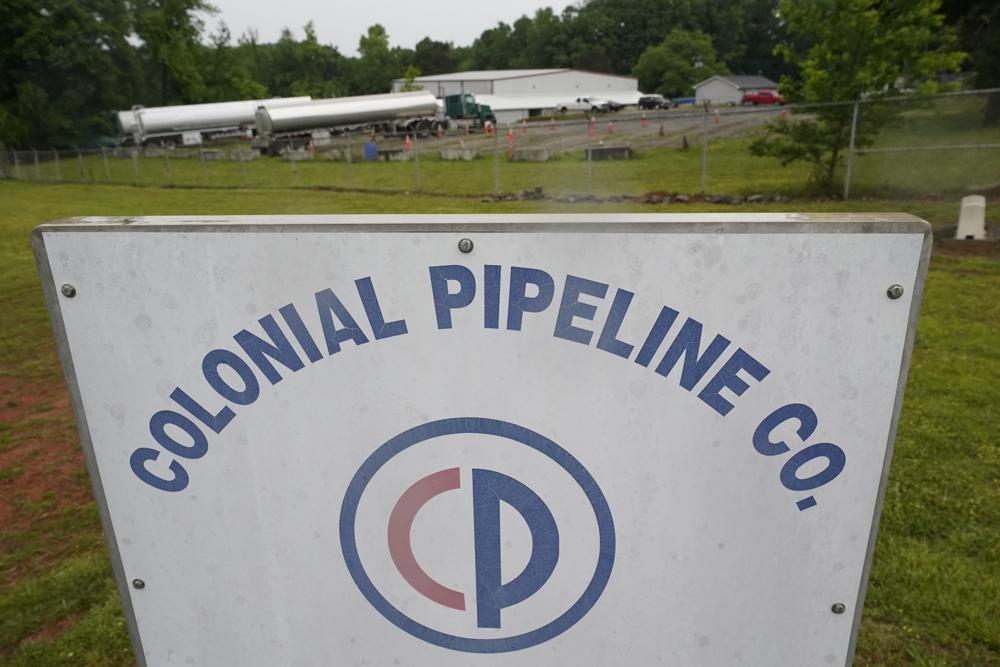
The nation’s largest fuel pipeline restarted operations Wednesday, days after it was forced to shut down by a gang of hackers. The disruption of Colonial Pipeline caused long lines at gas stations in the Southeast due to distribution problems and panic-buying, draining supplies at thousands of gas stations. Colonial initiated the restart of pipeline operations late Wednesday, saying in a statement that “all lines, including those lateral lines that have been running manually, will return to normal operations.” But it will take several days for deliveries to return to normal, the company said. In the meantime, drivers have been finding gas stations with little or no gas in some Southeast states. The Colonial Pipeline, which delivers about 45% of the fuel consumed on the East Coast, was hit on Friday with a cyberattack by hackers who lock up computer systems and demand a ransom to release them. The hackers didn’t take control of the pipeline operations, but Colonial shut the pipeline down to contain the damage. The attack raised concerns, once again, about the vulnerability of the nation’s critical infrastructure. “What you’re feeling is not a lack of supply or a supply issue. What we have is a transportation issue,” said Jeanette McGee, spokeswoman for the AAA auto club. “There is ample supply to fuel the United States for the summer, but what we’re having is an issue with is getting it to those gas stations” because the pipeline is down. The pipeline runs from the Gulf Coast to the New York metropolitan region, but states in the Southeast are more reliant on it. Other parts of the country have more sources to tap. For example, a substantial amount of fuel is delivered to states in the Northeast by massive tankers. Jamar Gatison, 36, was filling up his tank in Norfolk, Virginia, Wednesday before a doctor’s appointment. “I’m about to run out of gas, so I have no choice,” the construction worker said while waiting in line at a 7-Eleven. “I’m also an Uber Eats driver. I also need gas for that,” said Gatison, who added he probably won’t deliver food Wednesday night because he doesn’t want to wait in line again while the shortage continues. In North Carolina, 65% of gas stations were out of fuel, according to Gasbuddy.com, a technology firm that tracks real-time fuel prices across the country. Just outside Raleigh, two people were charged with assault after fighting and spitting in each other’s faces while arguing over their spots in line Tuesday at a Marathon gas station, authorities said. North Carolina Democratic Gov. Roy Cooper urged people Wednesday to only buy gas if their tank is low and to report any instances of price gouging. “This news is another reason people do not need to panic buy gas right now unless they really need it,” he tweeted after Colonial announced it was restarting the pipeline. Georgians were also getting squeezed, with 43% of stations there out of gas, according to Gasbuddy.com. In Virginia, 44% of stations were out, and in South Carolina, 16% had no fuel. Along the Appalachian Trail, which stretches from Georgia to Maine through some of the most rugged and remote terrain in the Southeast, hikers depend on car and van shuttles to ferry them to and from the trail and get them back to civilization. “If I don’t have the gas, I’m not running,” said Ron Brown of Ellijay, Georgia, who operates Ron’s Appalachian Trail Shuttles and often takes hikers on hourslong trips from Atlanta’s airport into the north Georgia mountains, and to and from many points along the trail. Mary Goldburg, 60, of Norfolk, Virginia, waited more than 20 minutes for a slow-operating pump at a 7-Eleven to fill up her tank on Wednesday. Her job includes delivering T-shirts for events and other promotional products. “I can’t get paid until my customers get their products,” Goldburg said. The disruption is taking place at the time of year when Americans begin to become more mobile, especially as the nation emerges from the pandemic. Four to five cars were lined up at each pump at a Circle K in Clemmons, North Carolina. Several people said they had driven to multiple gas stations to find one that had gas. Across the street, gas stations were out of fuel. Mair Martinez, who works in landscaping, was filling up his lawn equipment and truck after checking several other gas stations without luck. “That’s why we’ve come in today, to fill up everything,” he said. Johnathan King, who works for an area towing company, was filling up his tow truck. He said he typically does 10 to 12 service calls a day, driving between several area cities. “It’s going to be very hard for us. Hopefully, we’ll be able to get through it,” he said. Multiple U.S. agencies coordinated to relax rules and enable fuel to be shipped faster using trucks, trains, or ships, but those changes had little impact Wednesday. The White House said the Department of Transportation is now allowing states served by the pipeline to use interstate highways to transport overweight loads of gasoline and other fuels. But there’s a national trucker shortage, so the industry isn’t able to put many more trucks on the road. Nationwide there are about 121,000 convenience stores that sell about 5,300 gallons per day of gasoline, accounting for about 80% of retail fuel sales. At many stores, demand has been two to five times the normal amount, said Jeff Lenard of the National Association of Convenience Stores, in a conference call with reporters. Retailers were even running out of fuel in parts of Florida that are not dependent on the pipeline, he said. Rationing has been imposed after some natural disasters, including Hurricane Sandy in 2012, but there could be resistance to that this time, especially if it looks like the pipeline could return to normal operation in a few days. It could also backfire. “Once rationing occurs, more panic buying ensues,” said Ryan McNutt, CEO of the Society of
Harvey continues to impact gas prices in Alabama, pipeline opening delayed
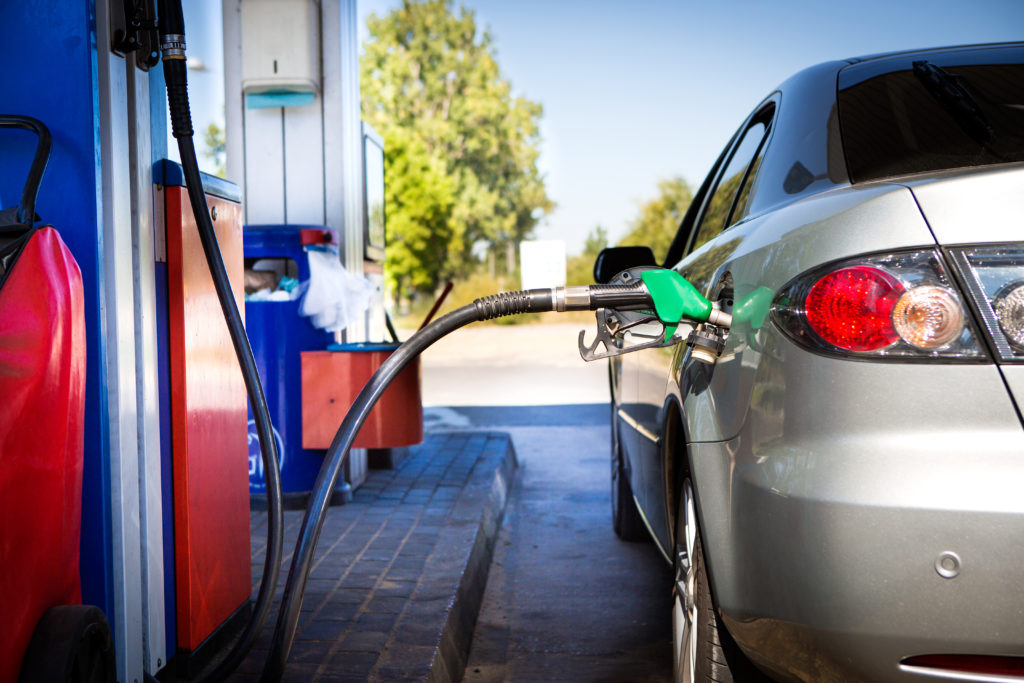
Gas prices continue to rise in the Yellowhammer State as delays to repair the nation’s largest fuel system continue. The Colonial Pipeline, which provides 40 percent of the east coast, shut down its fuel line Thursday due to damage sustained when Hurricane Harvey devastated the Gulf Coast. “We continue to work expeditiously to complete final repairs to our facilities damaged by the storm, and to assess our lines and right of ways to ensure the integrity of our system between Houston and Hebert,” Colonial Pipeline said in a statement. According to the company, the assessments are ongoing and they hope to restart the distillates (Line 2) on Monday, September 4, and gasoline (Line 1) on and Tuesday, September 5 . Alabama drivers have been feeling the pain at the pump since Harvey hit. The average price of a gallon of regular gas is $2.48 in Alabama on Monday, up $0.06 from Friday’s $2.42 due to increased demand from the Labor Day holiday weekend as well from the impact of Harvey. Nationally, the gas average has climbed to $2.65 in the wake of the storm. On Friday, Gov. Kay Ivey declared a state of emergency and enacted the state’s price gouging law to protect drivers in light of shortage.
Harvey shuts down major fuel pipeline supplying Alabama, East Coast
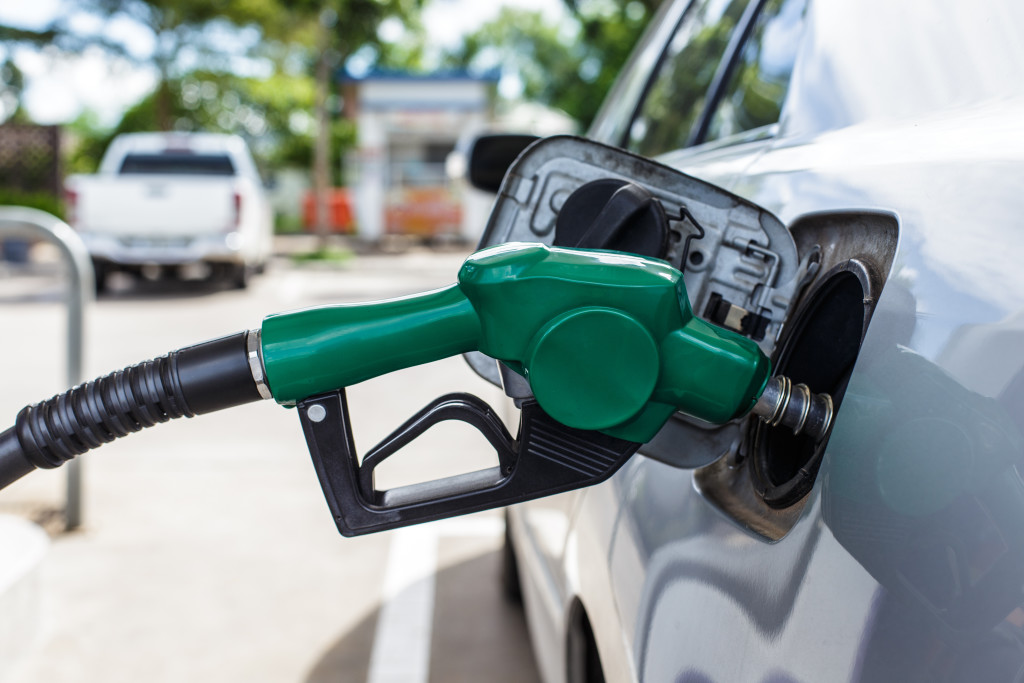
The Colonial Pipeline, which provides nearly 40 percent of the South’s gasoline, has shut down after Hurricane Harvey forced the closure of refineries and some of the pipeline’s own facilities. The company chose to shut down a one of its two lines, which supplies fuel to the Yellowhammer State among others, due to the storm’s effect on facilities west of Lake Charles, La. “Once Colonial is able to ensure that its facilities are safe to operate and refiners in Lake Charles and points east have the ability to move product to Colonial, our system will resume operations,” the company said in a news release. The news immediately sent gasoline prices across the country so a two-year high, Reuters reported Wednesday night. The average for a gallon of regular gasoline rose from roughly $2.35 a week ago to $2.45, AAA reported. The pipeline transports more than 3 million barrels of diesel, gasoline and jet fuel each day from the Houston area to the New York harbor and includes more than 5,500 miles of pipeline, most of which is underground. It last closed in September 2016 after a leak and gas spill in Helena, Ala. leading to days of empty gas station pumps and higher prices in Alabama, Georgia, Tennessee and across the Carolinas. The company said it estimates it will be able to return to full service Sunday,
Colonial Pipeline flowing again 6 days after deadly Alabama explosion

Colonial Pipeline has restarted its gasoline pipeline just six days after a deadly explosion and fire in Shelby County that killed one and injured six workers. A statement from Colonial says following removal of the affected segment of the pipeline Saturday, installation of the new segment commenced and was successfully completed and Line 1 resumed service at 5:45 a.m. CST on Sunday. “Subsequent to today’s successful restart, it is expected to take several days for the fuel delivery supply chain to return to normal,” the statement said. According to Colonial, fuel products are expected to arrive throughout Alabama within 24 hours.
Robert Bentley declares state of emergency following gas pipeline explosion
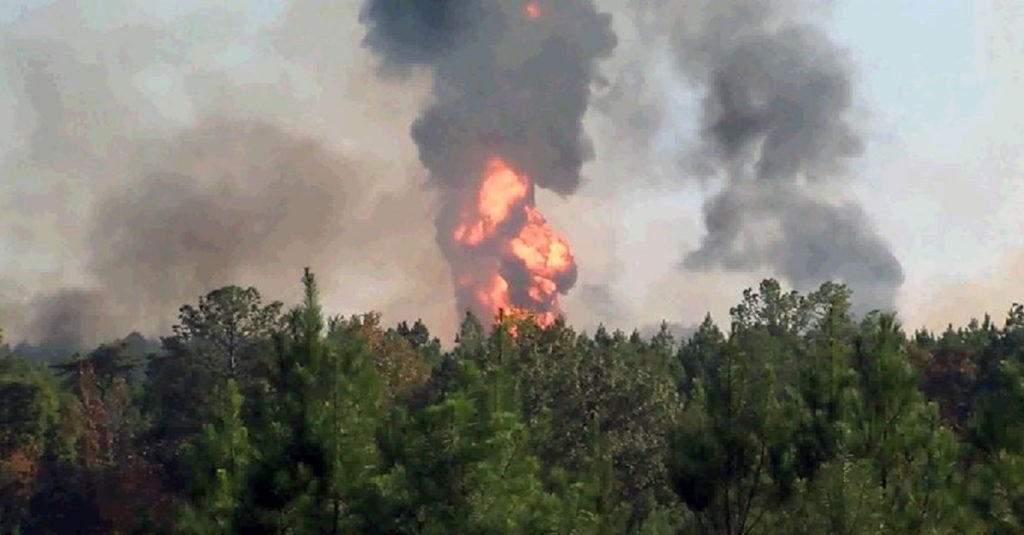
Gov. Robert Bentley on Tuesday declared a month-long State of Emergency for Alabama following a Colonial Pipeline explosion and fire in Shelby County Monday that killed one and injured six workers. Bentley signed the State of Emergency Tuesday that will facilitate the granting of a waiver from the U.S. Department of Transportation — Federal Motor Carrier Safety Administration, which is needed to lift the federal government’s limitation on the hours a driver can transport gasoline. The order will last until Dec. 1 unless the governor decides to terminate it sooner. On Monday, a contractor working on the Colonial Pipeline in the area just south of Birmingham accidentally hit a 36-inch below-ground transmission pipe while unearthing threaded O-rings (TOR) for rendering the line inert, causing an explosion and fire. The contractors were attempting to install a permanent repair required after the previous pipeline ruptured Sept. 9, 2016. An extended shutdown could create fuel shortages and higher gas prices in several states including Alabama, Georgia, North and South Carolina, and Tennessee — similar to what happened following the September accident. “My thoughts and prayers are with the six injured workers and with the family of the fatally injured worker,” Bentley said. “An accident of this magnitude is tough for any community to deal with, and I want to personally thank the local first responders for their immediate assistance to this accident, as well as the first responders from surrounding counties. They all provided resources and support to the help Shelby County in their time of need.” Cell phone footage of the explosion via April Ruth Everett. In addition to local responders, several state and federal resources are dedicated to responding to this disaster including: U.S. Environmental Protection Agency, U.S. Department of Transportation, Alabama Emergency Management, Alabama Forestry Commission, Alabama Department of Environmental Management, Shelby County Emergency Management Agency, Regional Paramedical Services and others. The Alabama Department of Environmental Management staff is actively participating in the response and is embedded within the Unified Command Center. Air monitoring is ongoing and boom has been deployed as a precautionary measure, but no surface water impacts have been documented at this time. The Alabama Forestry Commission is also assisting by monitoring the wildfires within the containment lines.
Explosion in Alabama shuts gas pipeline, shortages possible

For the second time in two months, a pipeline that supplies gasoline to millions of people was shut down, raising the specter of another round of gas shortages and price increases. The disruption occurred when a track hoe — a machine used to remove dirt — struck the pipeline, ignited gasoline and caused an explosion Monday that sent flames and thick black smoke soaring over a forest in northern Alabama, Colonial Pipeline said. One worker was killed and a half-dozen were injured. A September leak that spilled 252,000 to 336,000 gallons of gasoline occurred not far from the location of Monday’s explosion. That leak led to days of dry pumps and higher gas prices in Alabama, Georgia, Tennessee and the Carolinas while repairs were made. The cause of the leak still has not been determined, and the effects of the latest disruption weren’t immediately clear. Colonial Pipeline, based in Alpharetta, Georgia, operates 5,599 miles of pipelines, transporting more than 100 million gallons daily of gasoline, jet fuel, home heating oil and other hazardous liquids in 13 states and the District of Columbia, according to company filings. Authorities have not said which type of fuel was involved in the explosion Monday. Plagued by a severe drought after weeks without rain, the section of the state where the explosion happened has been scarred by multiple wildfires in recent weeks, and crews worked to keep the blaze from spreading. Coleen Vansant, a spokeswoman with the Alabama Forestry Commission, said crews built a 75-foot-long earthen dam to contain burning fuel. The Shelby County Sheriff’s Office said the blaze had been contained but it was unclear how long the fire may take to burn out. Two wildfires caused by the explosion burned 31 acres of land, Vansant said. “We’ll just hope and pray for the best,” Gov. Robert Bentley said in a statement. Houses around the blast scene were evacuated, and sheriff’s Capt. Jeff Hartley said it wasn’t clear when people might be able to return home. Eight or nine subcontractors were working on the pipeline when it exploded about 3 p.m. Monday, sheriff’s Maj. Ken Burchfield told Al.com. The conditions of those hurt weren’t immediately known. “Colonial’s top priorities are the health and safety of the work crew on site and protection of the public,” the company said in a brief statement. Republished with permission of the Associated Press.
Company: Pipeline leak fixed, gas line to restart Wednesday

The pipeline company working to repair a leak that led to gas shortages and higher prices for drivers across the South says its bypass repair is complete and it expects to restart its main gasoline line Wednesday. Colonial Pipeline spokesman Steve Baker tells The Associated Press that testing is now being done on the line. Baker said crews have been working around the clock to get fuel to markets, and that it will take a few days for the fuel supply chain to fully recover after the line restarts. “It won’t be something that’s immediately felt at the pump, but I would expect in the next week, you’d see a dramatic improvement versus this week,” said Andy Milton of Mansfield Oil. The 500-foot (152- meter) bypass was needed to move fuel around the leak of its main gasoline pipeline in Shelby County, Alabama. The leak, which spilled 6,000 barrels of gasoline into a detention pond, was detected Sept. 9. Earlier Tuesday, auto club AAA reported that gas prices continue to climb in several southern states after the pipeline leak in Alabama slowed the flow of fuel across the South. AAA reports that in Georgia, Tuesday’s average price for regular gas rose about 5 cents since Monday, to an average $2.36 statewide – up nearly 27 cents over the past week. The price has climbed nearly 7 cents since Monday in the Macon and Augusta areas. South Carolina saw an average price rise of nearly 4 cents from Monday to Tuesday – up nearly 18 cents from a week ago. The Columbia, South Carolina area saw prices rise about 6 cents since Monday. AAA reports Tuesday that Alabama, North Carolina, Tennessee and Virginia also saw prices climb since Monday. Colonial has said it was working “around the clock” to repair the break and supplies have been delivered or are on their way to locations in Alabama, Georgia, Tennessee, South Carolina and North Carolina. The shortage is blamed on a pipeline rupture and leak of at least 252,000 gallons (954,000 liters) of gas in Alabama. Republished with permission of the Associated Press.
Robert Bentley praises Colonial Pipeline’s response to Shelby Co. gas leak
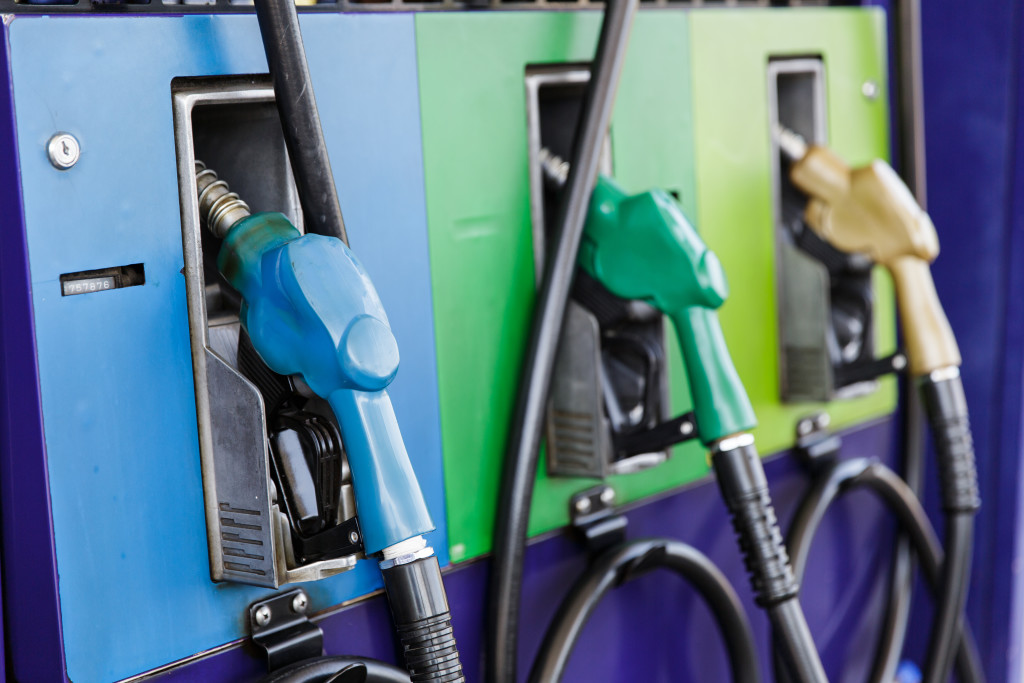
On Monday at the Colonial Pipeline Gas Spill Incident Command Center, Alabama Gov. Robert Bentley praised the response from Colonial Pipeline following a Sept. 9 pipeline leak that has since spilled 336,000 gallons of gasoline in Shelby County. Bentley said he was “very impressed” by the pipeline company’s response to the leak, telling reporters “they have done a very good job.” He also urged consumers not to panic about rising fuel prices or a potential gas shortage, explaining they can bring more gas in if necessary. “I want people to not panic and not worry about everyone filling their car up all at the same time,” Bentley explained. “If we did that, we’d have a shortage if we had a pipeline leak or not. I think that right now with a State of Emergency we can bring more fuel in if we need by trucks or by barge.” Bentley also disclosed he does not know how much the leak will ultimately cost the state. “That can be calculated when we get the original problem fixed,” Bentley said. Watch Bentley’s address to the media below:
Alabama pipeline leak causes gas prices to rise in many southern states

Across the South, gas prices are on the rise following a pipeline leak in Alabama, which has slowed the flow of fuel across southern states. On Sept. 9, Colonial Pipeline officials noticed a gas leak in Helena, Ala. that has since spilled at least 252,000 gallons (954,000 liters) of gas in the remote area of Shelby County. In the wake of the leak, neighboring states that depend on gas from the pipeline have seen prices at the pump increase. The auto club AAA reports Tuesday that Georgia, South Carolina, North Carolina, Tennessee, and Virginia have seen gas prices climb in recent days. Ironically, fuel costs have risen less in Alabama as compared to the state’s southern neighbors as fuel is still available in the Yellowhammer from the side of the pipeline not affected by the leak.


